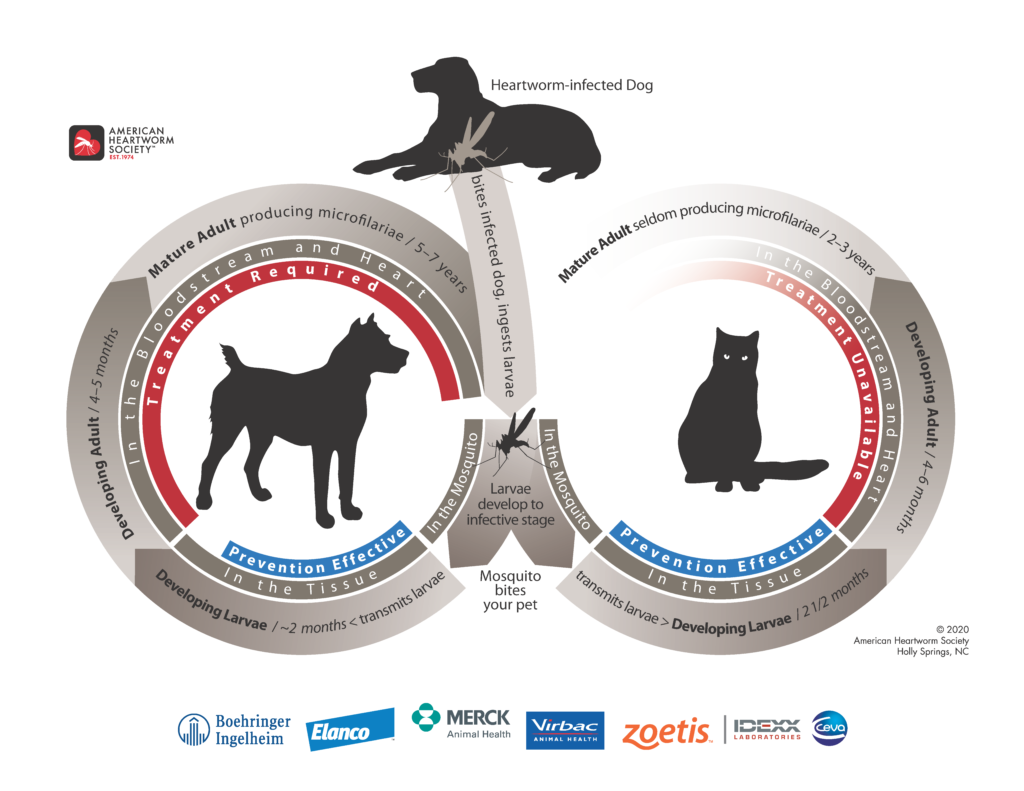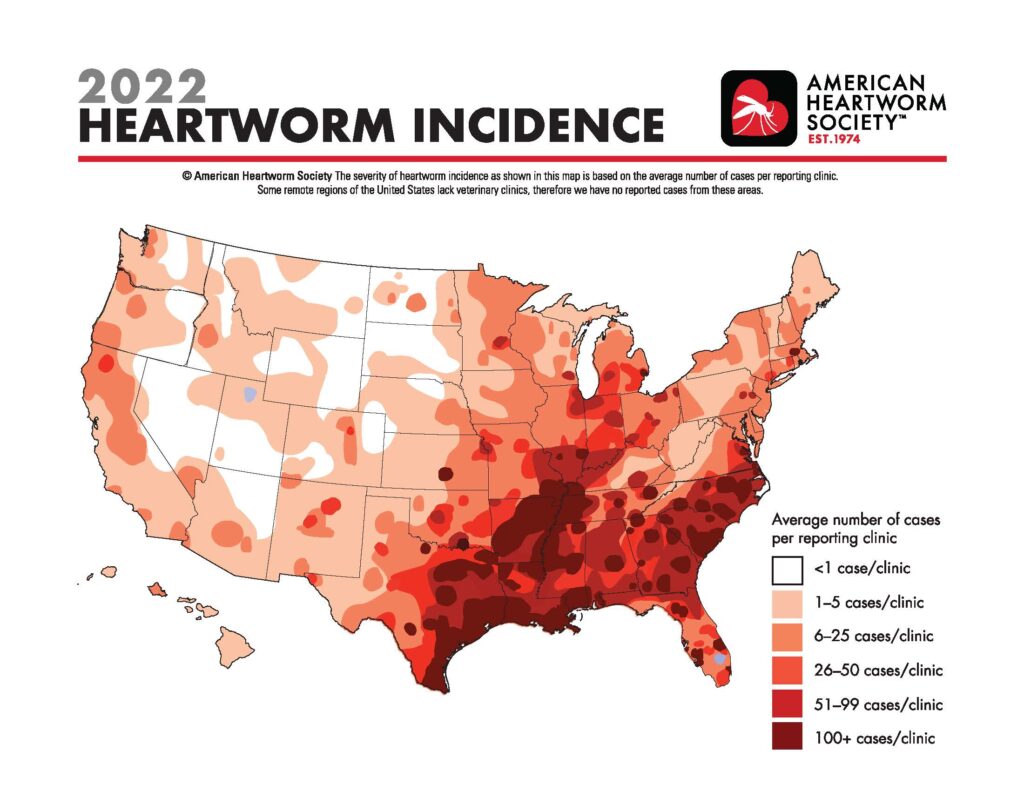This month is National Heartworm Awareness Month. With mosquito season fast approaching, there’s never been a better time to improve your knowledge of this serious disease and educate yourself on how to safeguard your canine companion. Keep scrolling to find out more about heartworm and how you can prevent it. To begin, it’s important to understand the heartworm lifecycle as depicted below.

Heartworm Disease in Dogs
Heartworm disease occurs when a dog or another animal is bitten by an infected mosquito. The heartworms reach up to a foot in length and live in the heart, lungs, and blood vessels, resulting in irreversible damage. When left untreated, the parasites continue to grow and multiply, leading to further issues, including poor health and a decreased lifespan.
Heartworm disease causes a wide range of symptoms, including:
– Persistent cough
– Fatigue, especially after exercise
– Weight loss
– Reduced appetite
– Bloated abdomen
– Light-colored gums
– Labored breathing

